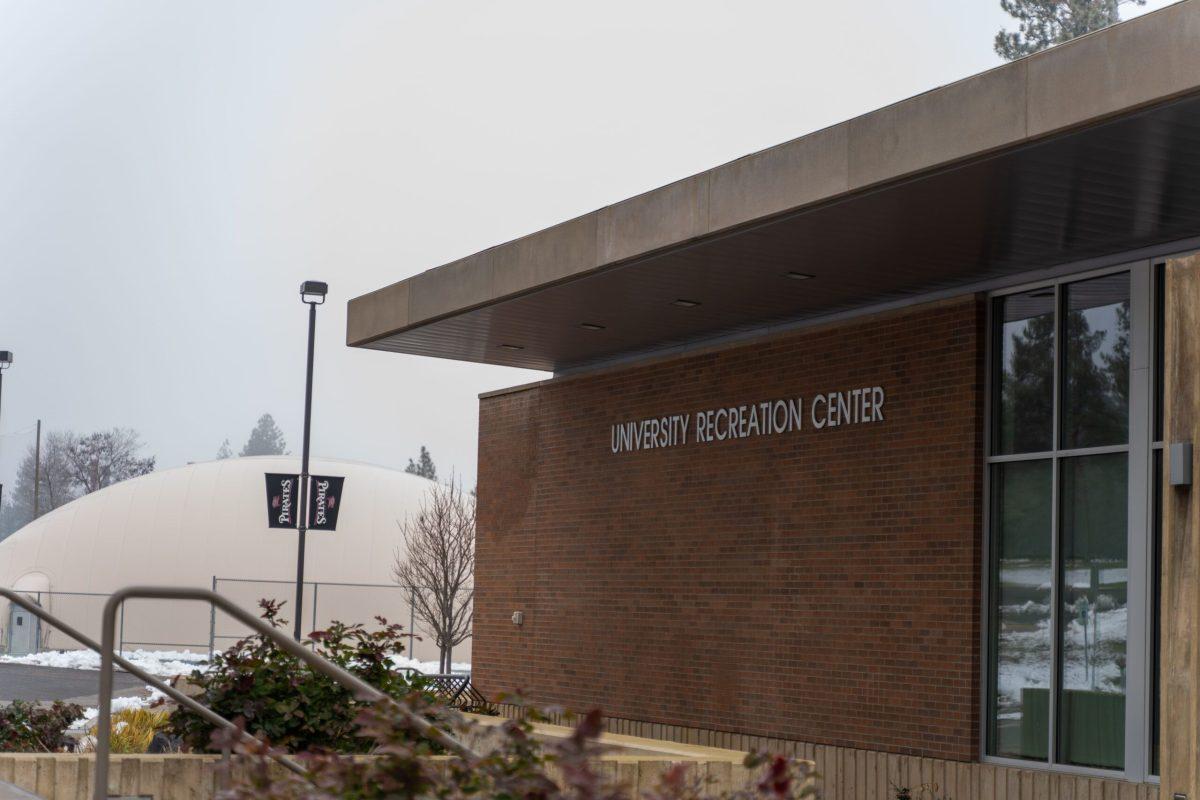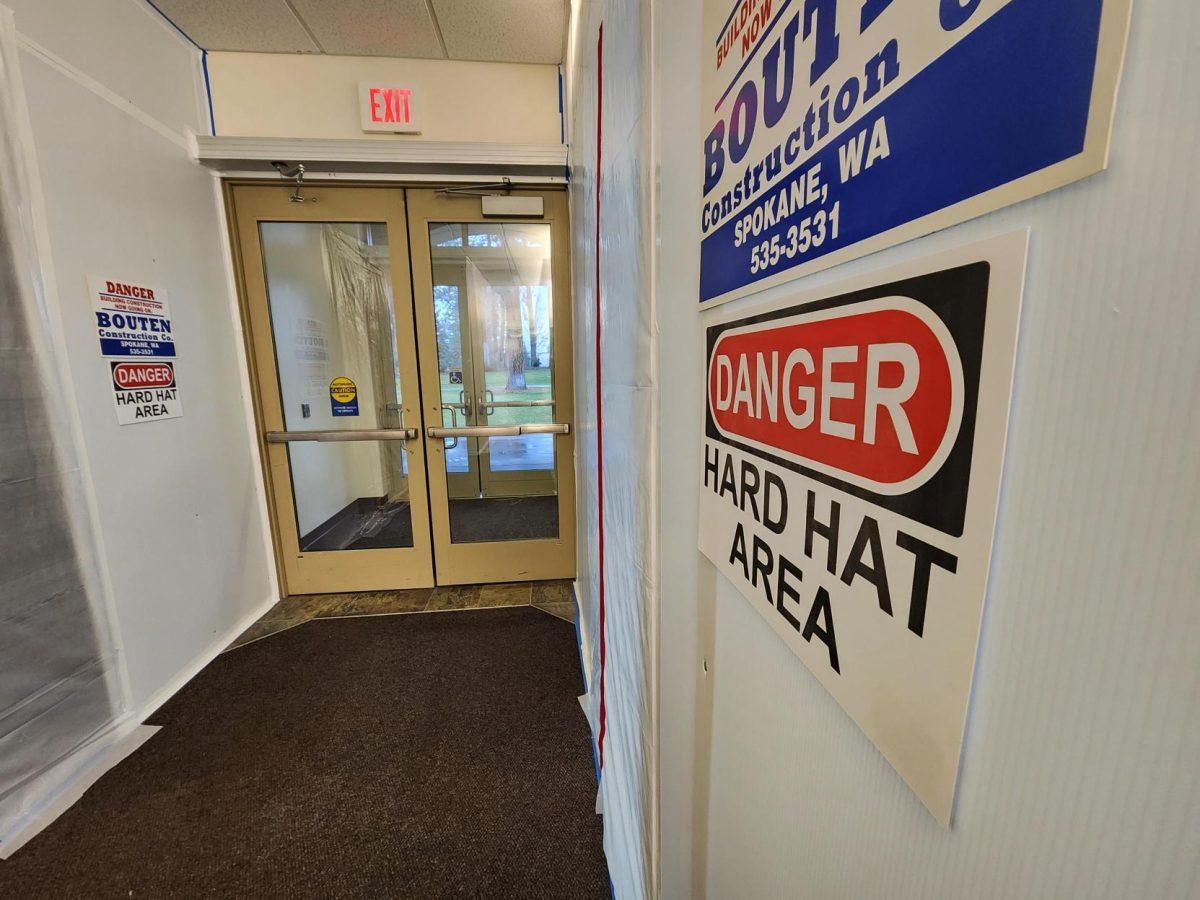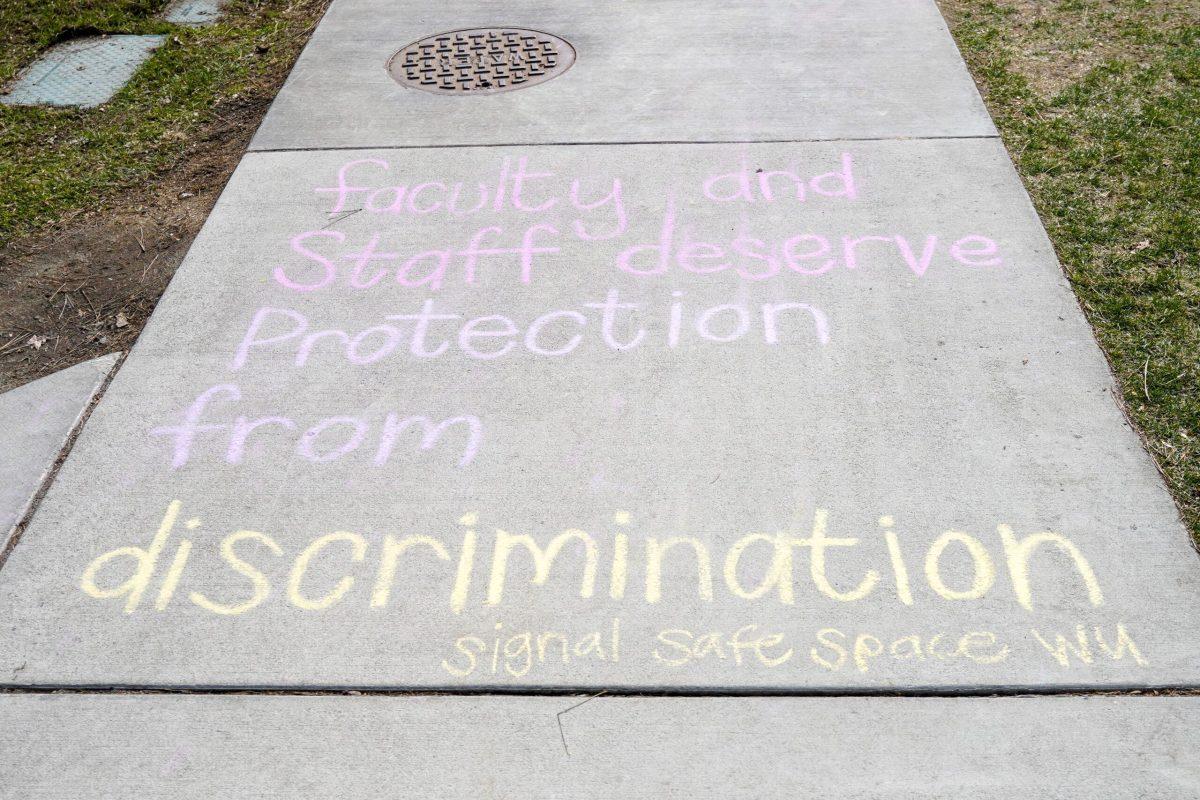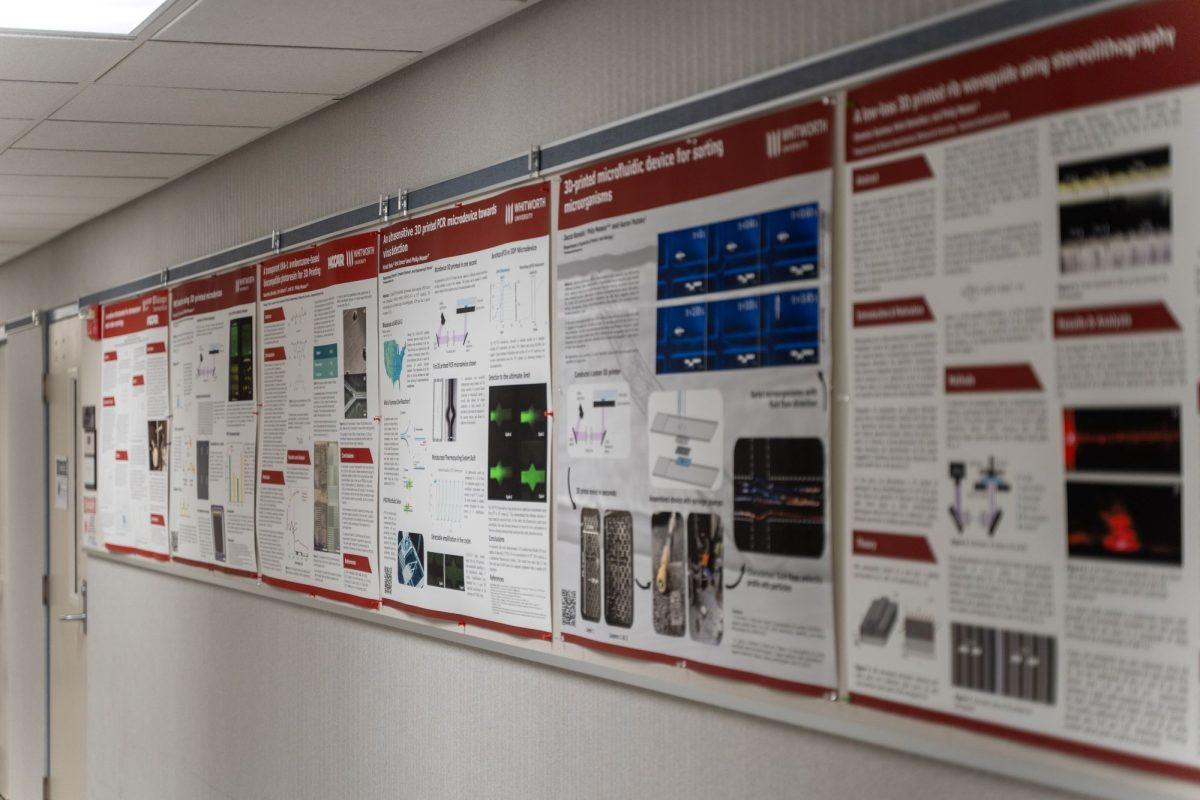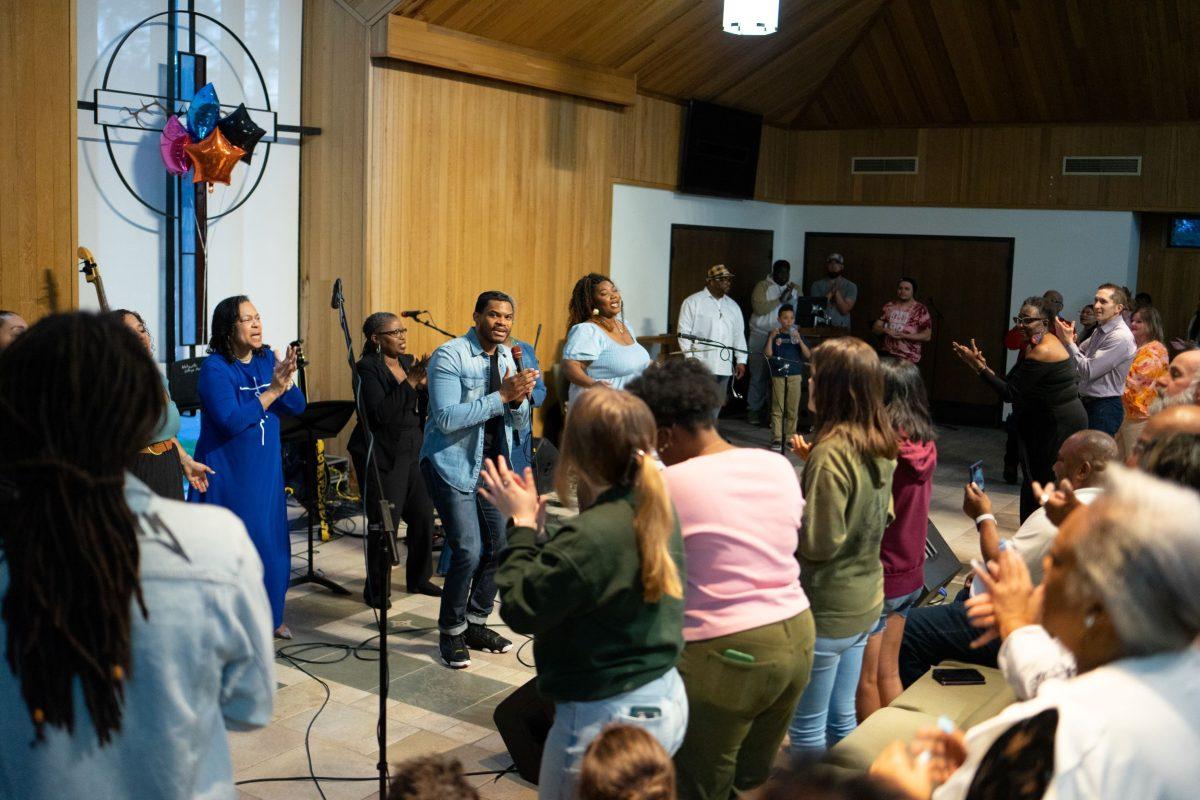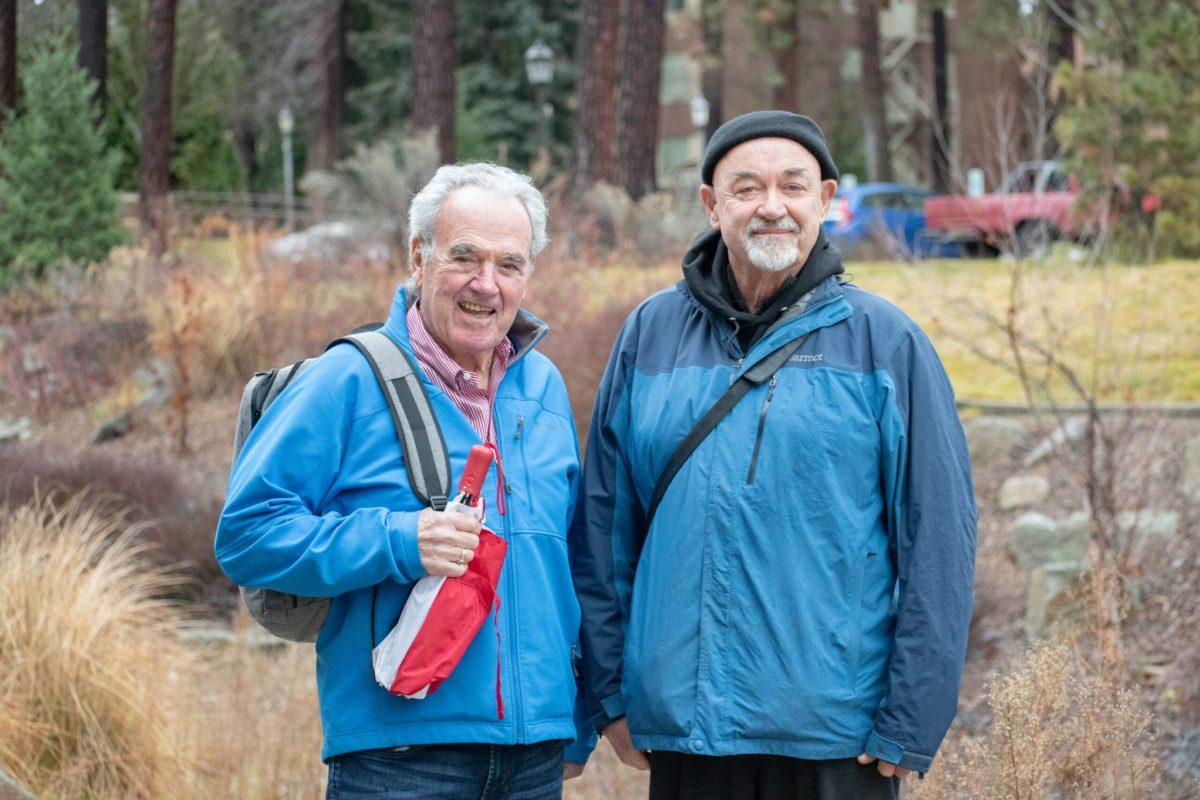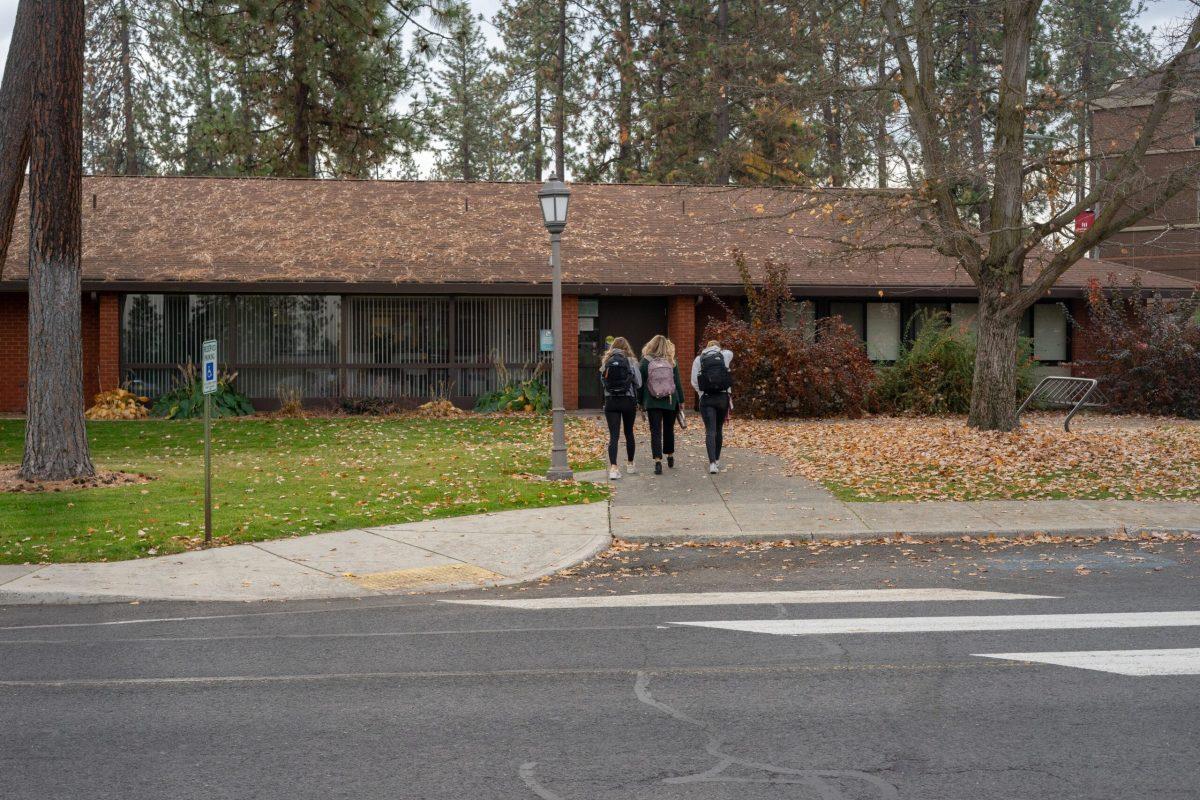By Emma Maple | Editor-in-Chief
On March 16, 2023, Cathy McMorris Rodgers visited Whitworth University to meet with Whitworth President Scott McQuilkin and discuss climate change and government action with fifteen interested students.
Rodgers is the U.S. Representative for Washington’s 5th congressional district, which includes Spokane. She has represented Eastern Washington voters for more than 20 years. She is also chair of the Energy and Commerce Committee and has been serving on that committee since 2010. According to the League of Conservation Voters, Rodgers has cast pro-environment votes on legislation in 5% of cases.
One of Rodgers’ main goals regarding energy is to increase domestic production of oil and natural gas to decrease reliance on international markets while slowly moving toward sustainable energy sources.
Her visit to Whitworth was part of a series of stops happening in the Spokane area, including the Spokane Waste to Energy Plant, the Long Lake Dam and Wellpinit.
The Whitworth event featured a short, informal talk from Rodgers, followed by a question and answer (Q&A) session with Rodgers and Benji Backer, President of the American Conservation Coalition. During the Q&A, students asked Rodgers and Backer questions about different environmental strategies and policies that Rodgers stood behind.
The beginning talk by Rodgers gave a brief explanation of energy and how it is used in the United States. Hannah Duncan, who is majoring in environmental studies, felt that the opening statements “stifled some of the momentum [students had about the conversation].”
“[The opening statements were] a mixture of things [that] I already learned in freshman year and things that [are] really not the impression I get from American policy […] like [saying] the U.S. has had a decrease in fossil emissions,” Duncan said. “I don’t know where that’s coming from, because that’s not really the world that I’ve been living in.”
During the Q&A, many of the questions centered around Rodger’s position on the dams that are part of the lower Snake River. There are four dams on the lower part of the Snake River, and some have said that the removal of these dams is “essential” to allowing the local salmon populations to thrive.
Rodger’s stance on the issue is firm: she will do everything she can to stop the dams from being removed. During the Q&A, Rodgers heavily emphasized the fact that the dams were not the main barrier to healthy salmon population. Rather, she said we should be focusing on examining how the dumping of untreated sewage into Puget Sound is affecting the salmon population. She urged students to help convince the Environmental Protection Agency (EPA) to launch an investigation into this supposed dumping, to stop any harm that may be occurring.
Untreated sewage has been dumped into the Sound in the past. In 2017, West Point Treatment Plant dumped 30 million gallons into the Sound due to a “cascade of errors.” Smaller spills continued to occur in 2018 and 2019. The Department of Ecology fined King County for the 2017 spill, and the Suquamish Tribe sued King County for the smaller spills. Suquamish Tribe’s lawsuit was settled in 2022. The terms of the lawsuit included upgrades that would reduce or eliminate future spills, with penalties imposed for missed deadlines. No evidence of continued spills exists.
During the Q&A, Dylan Richardson, class of 2025, who is double majoring in environmental studies and political science, asked Rodgers about her energy priorities. Richardson referenced Rodgers’ opening statement to the House Committee on Energy and Commerce, where she discussed her first focus being on our energy future and her second focus being on our energy independence from other countries. Richardson asked her how the American Energy Independence from Russia Act and the Strategic Production Act potentially conflicted with those stated goals.
“I asked her, ‘How do these bills, and their increase of the percentage of federal lands that are designated for oil drilling, interact with her supposed and very vocal policy goal of switching to more renewable energy?” Richardson said. “And how do these two undermine each other? Because her bills and her actual policy actions say one thing, while her campaign rhetoric says something else.”
We cannot just switch to renewables overnight – we need to have an energy source to rely on, even if it is unrenewable, while we are in the process of switching, responded Rodgers.
“I thought the answer was particularly weak because the new oil drilling that can take place because of her acts won’t hit the market for a minimum of six years after project approval. So it’s going to be years and years from now before any of that oil she’s trying to put on the market will actually hit the market,” said Richardson.
During the Q&A, Backer joined in the discussion by agreeing and expounding on much of what Rodgers said. Richardson said the conversation led him to believe that Backer was not doing enough to acknowledge the necessary time frame for addressing climate change. Rather, Richardson said many of the environmentally targeted policies the American Conservation Coalition advocates for seem to be based on market factors.
“When profit is the motive, I firmly believe that profit comes first, humans come second, and our environment comes third,” Richardson said.
Duncan asked Rodgers and Backer about building a culture of less energy consumption in Americans, who tend to overconsume and classify energy wants as energy needs.
“Their response was, ‘Well, we should turn off the lights more.’” Duncan said. Rodgers and Backer discussed the possibility of automating things so that energy saving is built into people’s lives.
“It wasn’t a learning experience for me,” Duncan said. “And I don’t think it was a learning experience for the representative, either.”
Many of the students in attendance expressed concern that this event was just a routine campaign stop Rodgers’ planned to use to contribute to her image.
Richardson said he felt as if “[she] and her team were trying to ambush us.”
He said that none of the students knew much about what was going to happen until the day before.
“It was all very disorganized and felt like the goal was to have us be unprepared going into it,” Richardson said. “Basically [we only went in] with the knowledge that it was a campaign stop and she wanted to use the conversation as a way to benefit her own election prospects.”
According to Jaime Warfield, executive assistant to the president, the President’s Office was contacted by Rodger’s office around March 6. They requested to visit campus and speak to a class in the business, political science or environmental studies around 11am. Because no class meets at 11:00 a.m. on Thursdays, different professors recommended students who might be interested in an opportunity to meet with Rodgers for a discussion.
“While it was a quick turnaround, I am thrilled it worked out,” Warfield said.
Skye Gordon, class of 2023, is majoring in political science with a minor in philosophy. She said she thinks the reason Rodgers visited Whitworth was to get promotional material that would attract college students by showing how she was interacting with college students regarding the environment.
At the beginning of the event, Warfield said that although they did not have photo release forms on them, Rodgers’ team may be taking pictures of the event. She asked if the students would be okay with that. Many of the students immediately stated that they would not be comfortable.
Duncan explained that before the event, students had been emailing about the fact that Rodgers may take their photos and use it for her campaign.
“It was an easy decision for me,” she said. “I would rather not be used for propaganda. I think I would have made the same decision even if it had been a politician that I agreed with more.”
Richardson said the vocal decision of not being part of the photographs was a way to tell Rodgers that he was not going to be part of her campaign.
“[Getting promotional photos] wasn’t her stated intention,” said Richardson. “She said that she just wanted to come to Whitworth to chat with some students about her environmental policy. And that [the decision to not be photographed] was to keep it as just that, instead of turning it into a photo opportunity and a stop at the beginning of her campaign.”
Richardson said that some of the students had different reasons they chose not to be in any photographs. Some, he said, did not want to have a record of association with Cathy McMorris Rodgers due to their differences in political views. Others did not feel comfortable being part of something that might be staged, rather than genuine.
“We were pretty unified in what we actually chose to do,” Richardson said, “but there were definitely different reasons floating around.”
Duncan felt as if Rodgers presented her views as informative rather than a perspective laden with opinion and base assumptions. “It was less open to discussion […] there wasn’t a lot of really fantastic learning.”
Richardson said he was grateful to Rodgers for the time she spent with the students. While the event was originally supposed to have a hard cut-off at 45 minutes, Rodgers stayed 15 minutes over so that she could hear more questions.


